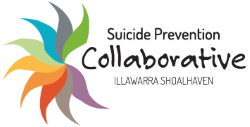Wollongong's Matt Armitage has lived with anxiety for much of his life - read about his story below.
Story by Natalie Croxon, Photo by Robert Peet, Illawarra Mercury.
"I had a lot of trouble going out in public, or even going and hanging out with friends that I've known for a while... just felt a little out of place and different," Mr Armitage, 18, said.
In year 9, he suffered a panic attack in front of his friends - but it made him realise he wasn't alone.
"[I] kind of started to realise that it wasn't an experience that only I was going through," Mr Armitage said.
"And that my anxiety wasn't something that I really needed to hide, because other people were going through similar things."
Mr Armitage, a member of the local headspace youth reference group, wants to encourage people to open up if they are experiencing difficulties in their life.
"Even though someone like myself felt like they were completely isolated and by themselves and that nobody would understand what they're going through, it's important to know that there are people who will understand what you're going through," he said.
"So I guess my advice for a young person who's anxious about reaching out and speaking to their friends is - it sounds simple - but just not to be, because there's a very real chance that your friends or your family will understand what you're going through and maybe have experienced something similar and be able to help you."
- Children and young people can find support at Wollongong headspace at 7 Atchison Street, or by calling 4220 7660. Help is also available over the phone and online from Kids Helpline on 1800 55 1800 and Lifeline on 13 11 14.
Recent data from the Australian Bureau of Statistics shows that suicide was the leading cause of death for people aged 15 to 44 in 2022, and the second-leading cause of death for children aged 5 to 17.
In 2022-23, Kids Helpline made 4608 contacts with police, child safety or paramedics due to concern of a child being at imminent harm, and of these 2000 were undertaken when a child was deemed to be at immediate risk of suicide.
Suicide is also something that has touched Mr Armitage's family, with his father having lost close friends.
He said this opened up discussions about suicide in his family.
Knowing now how suicide can affect a community, Mr Armitage is willing to bring up the issue with friends if he is worried something is going on.
"I'm definitely more open about checking in on a friend if I feel that they're going through something, or that there's something that's changed their life and they're not being themselves," Mr Armitage said.
He feels the stigma surrounding mental health issues had not gone away, but young people are more open about the topic.
"I think people my age are very supportive and understand mental health a lot more," he said.
Members of the community can learn the skills to identify suicidal distress, confidently ask someone if they are thinking about suicide, and refer them to appropriate supports with QPR training.
The QPR (question, persuade, refer) course can be completed online and takes about an hour, and the Mercury and Illawarra Shoalhaven Suicide Prevention Collaborative have partnered to offer 500 free courses.
Somewhere young people can turn for help
Mr Armitage is a member of the Wollongong headspace youth reference group, which provides feedback and input on headspace's services.
headspace is a free, early intervention mental health service for people aged 12 to 25, which also provides physical and sexual health services, vocational and educational support, and alcohol and other drugs services.
Wollongong service manager David Wootton said headspace was often the first mental health service a young person had accessed, and the organisation prided itself on trying to make that a good experience.
"We accept referrals from anywhere and are really proud of the young people and their friends or family who make the call to seek support," Mr Wootton said.
"We honour that call by working hard with young people and their carers on their individualised wellbeing goals."
He said demand for the service had always been high, but presentations had changed over time as young people faced different pressures; identity formation was occurring under multiple influences.
Mr Armitage said young people were faced with many influences in their lives, from friends to social media and the news.
"Peer pressure and the need to impress is also a significant pressure for young people in our community, so its very important for young people to remember that there are services such as headspace, Lifeline or Kids Helpline that are easily accessible and very approachable to help them through tough times," he said.
Mr Armitage said he approached his work with headspace by drawing on his own experiences and thinking about what would have worked for him when he was in a rough spot.
"Especially with my social anxiety, whenever we're talking about events at headspace that involve community engagement, my first thought is, 'If year 7 Matt was to go to one of these events, how could we make him feel comfortable to engage with us and even just feel comfortable being around other people in this kind of setting?'" he said.
Tracy Adams, chief executive officer of Kids Helpline provider yourtown, said early intervention was critical and could help young people experiencing distress or suicidal ideation "bounce back".
- If you need support in a crisis, there is Wollongong Safe Haven (open 2-10pm Wed-Sat, 55 Urunga Parade, Wollongong), Lifeline on 13 11 14, or 13YARN on 13 92 76. For those who have lost a loved one by suicide, StandBy Support After Suicide (phone 1300 727 247) and Thirrili Indigenous Postvention Support (24/7, phone 1800 805 801) offer emotional and practical support.
